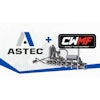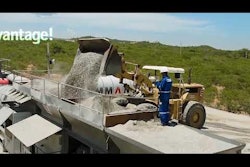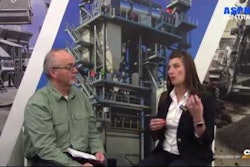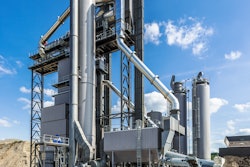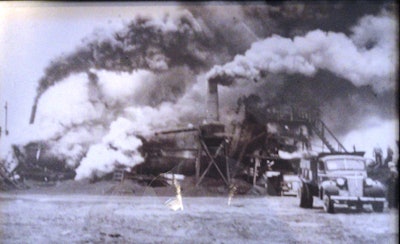
As asphalt plants in northern North America gear up to start their 2018 production season I would like to take a moment and talk about safety around those plants.
One of the jobs I have at C.M. Consulting is as an “Expert Witness” in plant accident cases around America. Sadly, as a result of this job I see far more accidents than I even knew occurred in our industry each year. It has been a real ‘Eye Opener’ for me.
Asphalt plants can be very dangerous places. Accidents, sometimes fatal, happen far too often. Most accidents can be traced to the same root cause; the pressure for more production supersedes common sense and normal safety protocols. I see a lot of safeties by-passed in the effort to reach those production quotas.
It is strongly recommended that you don’t disable any safety devices, but out in the real world, under the pressures of production I know it happens. If you are forced to do so, the utmost effort MUST be made to repair that safety device as soon as possible. Preferably that same day. Extreme caution must be used when operating any piece of equipment on which a safety device has been disabled.
The best advice I can offer is that companies carry adequate spares of ANY safety device that exists on their plant. Any other scenario and you are flirting with trouble. You need to be safe ALL the time, but unsafe for only seconds. Accidents happen in split seconds. No amount of production is worth maiming or possibly killing an employee.
Two things can work together at your asphalt plant to increase safety: Common Sense, coupled with a ‘Ridged Safety Program’. This program should include mandatory weekly Safety meetings to discuss Safety Protocols. Everyone should have a voice, from the top down. Even the truck drivers, who spend a lot of time around plants. And if anyone has a concern, it needs to be recognized and addressed.
Speaking of the trucks, one area of safety that is routinely compromised at many asphalt plants is the conflict between truck traffic and the needs of the loader operator to access his stockpiles. Small pits, filled with the aggregate for coming jobs, sometimes offer precious little space to set-up a plant. Compromises must often be made that can and do jeopardize safety. One common practice is to run the truck traffic behind the loader at the feeders until enough aggregate can be used up to permit the construction of an alternate path. In the heat of battle, the loader operator is a busy person. Sometimes, hurried past the point of conscious thought by the need to keep up with the plant, the loader operator backs away from the feeders without checking behind the machine.
Since loaders have the right-of-way in almost all pits, the operator gets away with this most of the time. But not always. It seems obvious that the utmost care must be exercised during the time the trucks are vulnerable, yet each year trucks are wrecked and their drivers hurt from loader/truck encounters. One method of combating this problem is to have weekly safety meetings prior to the start-up of operations each Monday. The loader man and all truck drivers should discuss the ways to keep their respective activities safe for the others, and work out a plan that is acceptable to everyone involved. My suggestion: a common C.B. (citizen band) radio in the loader and one in each of the trucks can go a long way toward eliminating conflicts. Again, communication is often the key to safety.
Basic Safety Principles
What almost all of the accidents I have seen around asphalt plants in my 40+ year career have had in common is that someone disregarded a basic safety tenant. Under the pressure of production quotas people did things that they may not have done in ordinary circumstances. And it ended up costing them. Sometimes dearly.
Asphalt plant operators often feel tremendous pressure to produce hot mix by any means possible. Unfortunately, this shifts the focus off of safety and onto money. Perhaps a clear-cut set of guidelines dealing with company policy on safety issues should be drawn up and distributed to everyone involved with the plant. Be sure to include the Paving Superintendent. This individual can exert enormous pressure on the plant operator without even realizing that he is doing it.
Remember: Everyone wants to do a good job and will sometimes go to great lengths to get results. Often, to that end, things are done that normally would not even be considered. Once again, communication is the key to safety. Another potentially dangerous activity around portable plants is the handling of hot asphalt oils. Each year a large number of people are burned when they are careless, equipment fails or hot oil is forced into plugged lines. A hose that fails explosively under high pressure can send a surprising amount of oil in a large radius, to the peril of anyone unfortunate enough to be standing near. Properly maintained and operational pressure relief valves can help eliminate a lot of the risks. Also, a remote start-stop station for the off-loading pump can be a true asset if an accident does occur and spraying oil drives everyone away from the area. The flame used to heat stubborn pumps, lines and off-loading hoses can sometimes cause problems, especially in those area where housekeeping is lax.
Asphalt oil fires are difficult to extinguish, once they get going. The best way to prevent these fires is to deny them a chance to get started in the first place. Oil messes should be cleaned up immediately. Any leaking fittings, hoses or shaft seals should be repaired or replaced at once. In addition, a liberal sprinkling of five and ten pound fire extinguishers around the off-loading area will go a long way toward minimizing the damage should an incident occur. A shovel and a modest pile of sand can also provide some insurance, and are useful in cleaning up oil spills. The issue of careless people is a somewhat more difficult to deal with, since some folks only learn in the aftermath of an accident. If a person is consistently careless and puts themselves and others at risk, perhaps it's time to replace the guy, even if he is Aunt Mabel's favorite son.
When dealing with safety issues, one must keep in mind the fact that you need to be safe all the time-- you need only be careless once for tragedy to strike.

